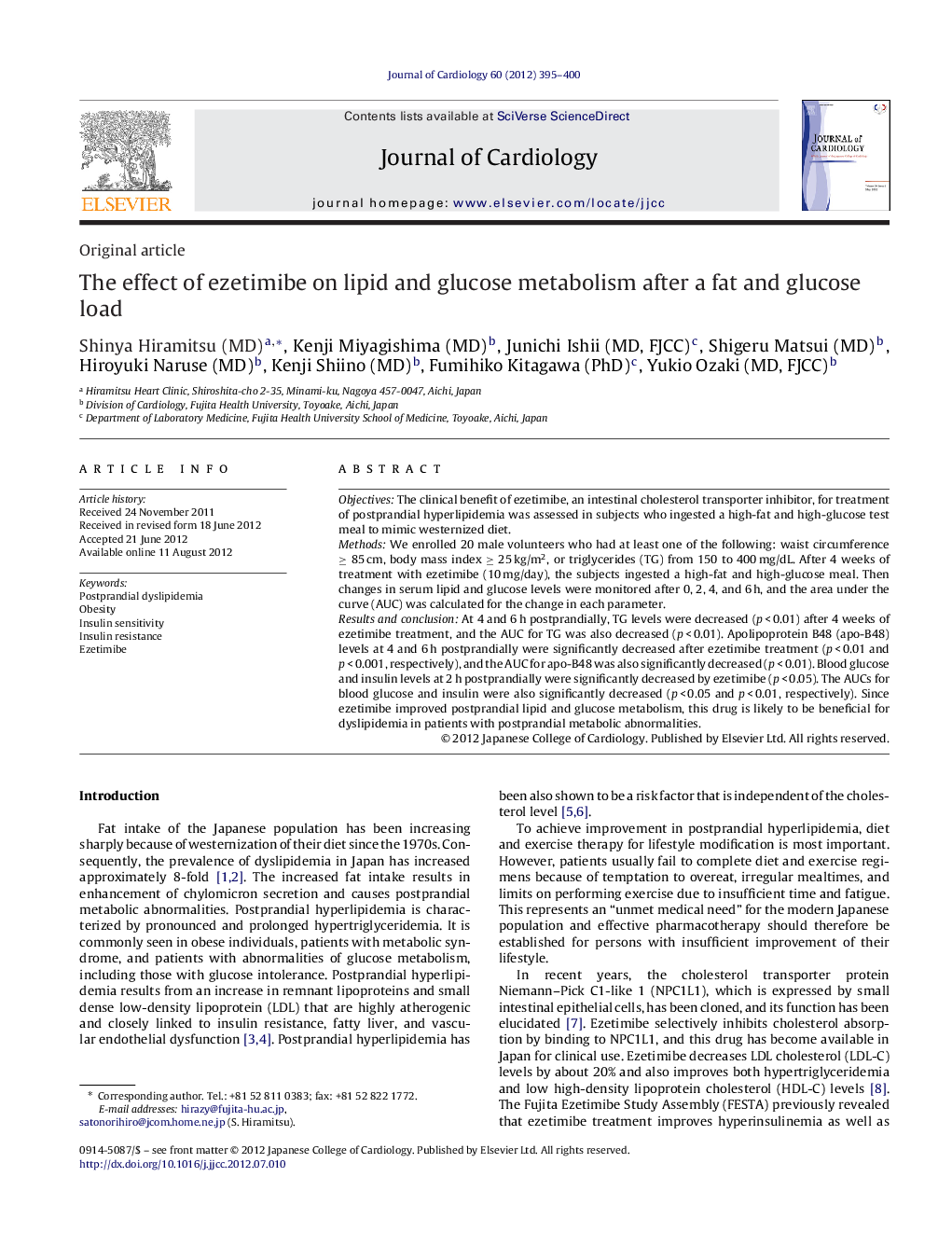| Article ID | Journal | Published Year | Pages | File Type |
|---|---|---|---|---|
| 2963190 | Journal of Cardiology | 2012 | 6 Pages |
ObjectivesThe clinical benefit of ezetimibe, an intestinal cholesterol transporter inhibitor, for treatment of postprandial hyperlipidemia was assessed in subjects who ingested a high-fat and high-glucose test meal to mimic westernized diet.MethodsWe enrolled 20 male volunteers who had at least one of the following: waist circumference ≥ 85 cm, body mass index ≥ 25 kg/m2, or triglycerides (TG) from 150 to 400 mg/dL. After 4 weeks of treatment with ezetimibe (10 mg/day), the subjects ingested a high-fat and high-glucose meal. Then changes in serum lipid and glucose levels were monitored after 0, 2, 4, and 6 h, and the area under the curve (AUC) was calculated for the change in each parameter.Results and conclusionAt 4 and 6 h postprandially, TG levels were decreased (p < 0.01) after 4 weeks of ezetimibe treatment, and the AUC for TG was also decreased (p < 0.01). Apolipoprotein B48 (apo-B48) levels at 4 and 6 h postprandially were significantly decreased after ezetimibe treatment (p < 0.01 and p < 0.001, respectively), and the AUC for apo-B48 was also significantly decreased (p < 0.01). Blood glucose and insulin levels at 2 h postprandially were significantly decreased by ezetimibe (p < 0.05). The AUCs for blood glucose and insulin were also significantly decreased (p < 0.05 and p < 0.01, respectively). Since ezetimibe improved postprandial lipid and glucose metabolism, this drug is likely to be beneficial for dyslipidemia in patients with postprandial metabolic abnormalities.
